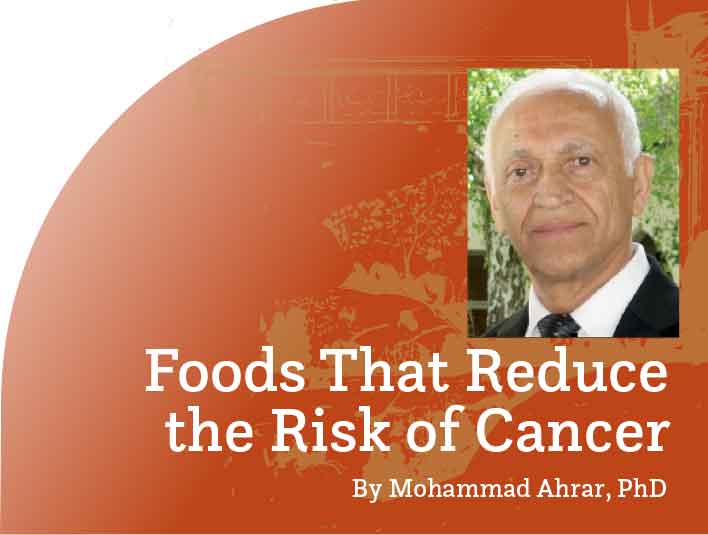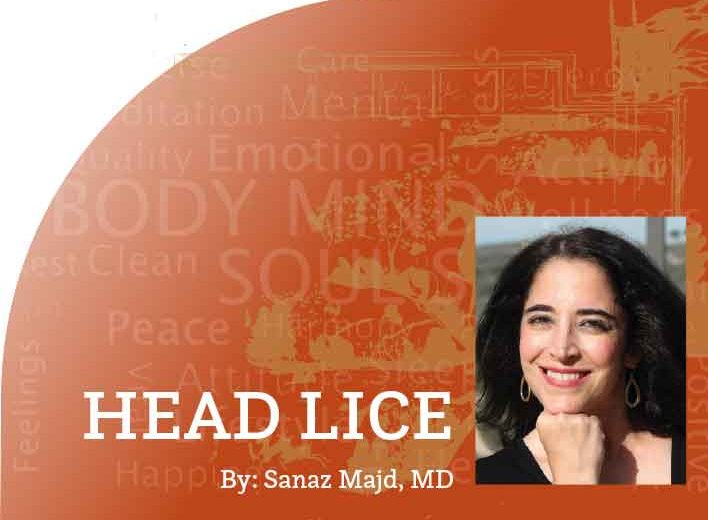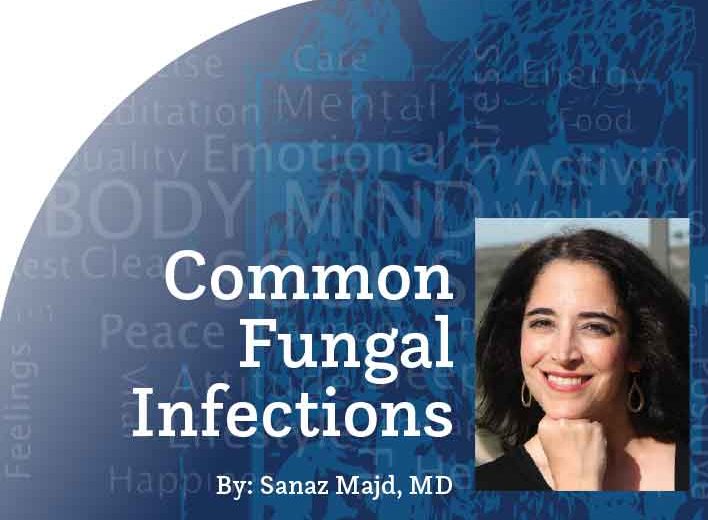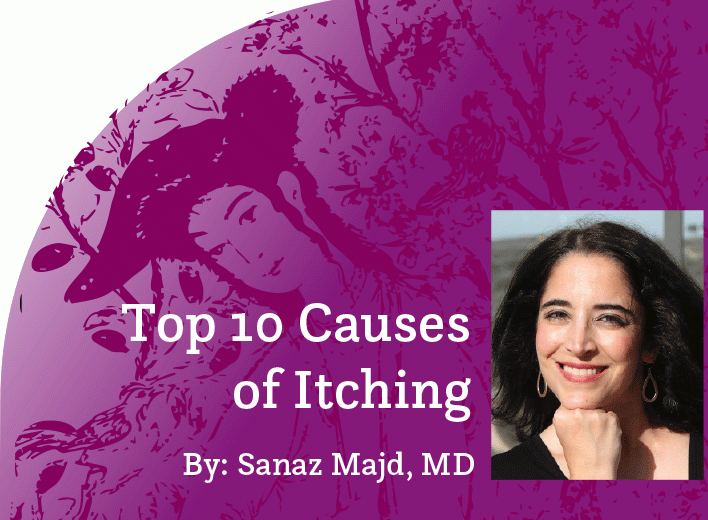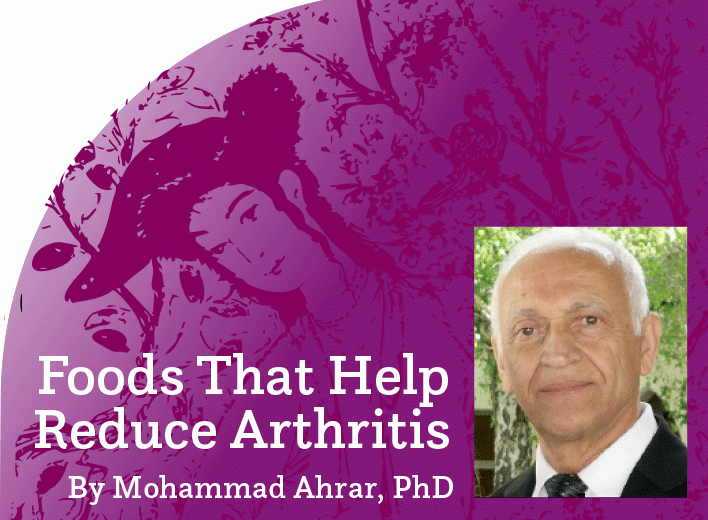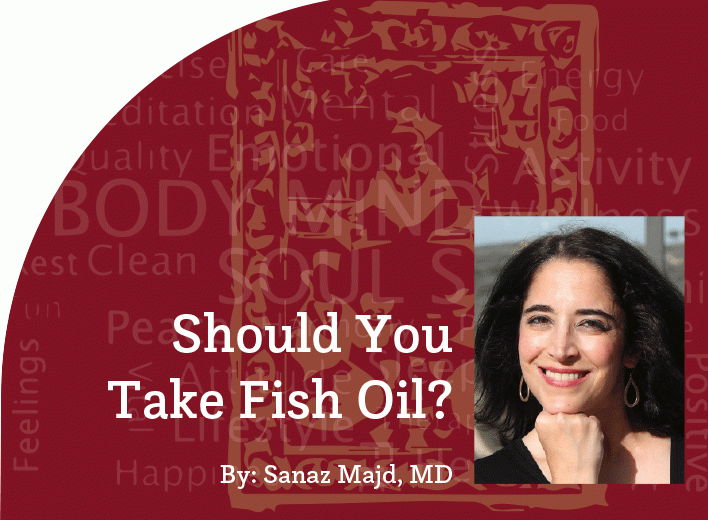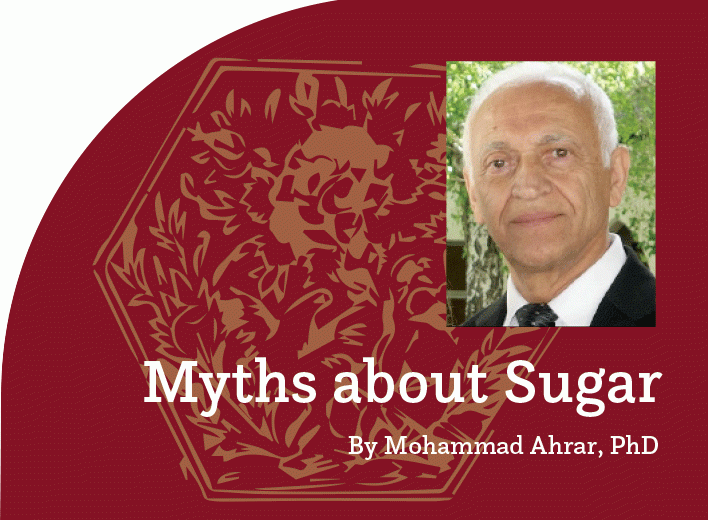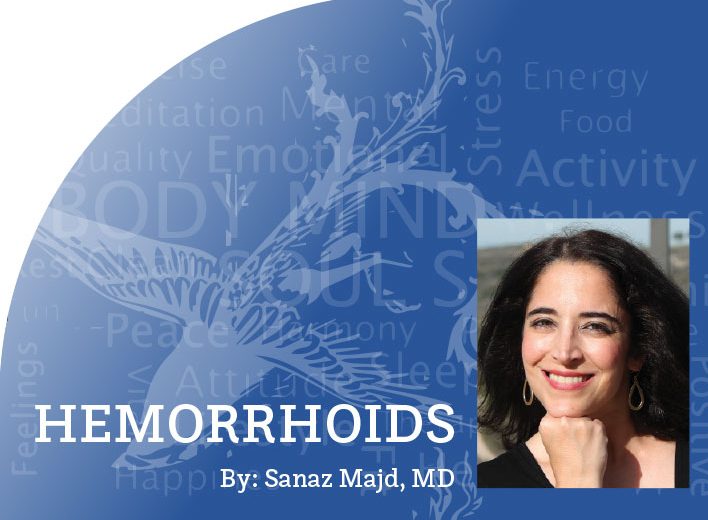Educational Series
The Science of Nutrition
Foods That Reduce the Risk of Cancer
By Mohammad Ahrar, PhD
Introduction
Cancer is recognized as a major illness affecting millions of people every year around the world. The exact causes of cancer are not known, but risk factors such as environment, diet, and genetics can contribute to cancer. Adopting a good living style and eating habits can help lower the risks or even fight against cancer. In this article, we will review some basics about cancer and discuss the role of foods and eating habits that can increase or decrease the risk of cancer.
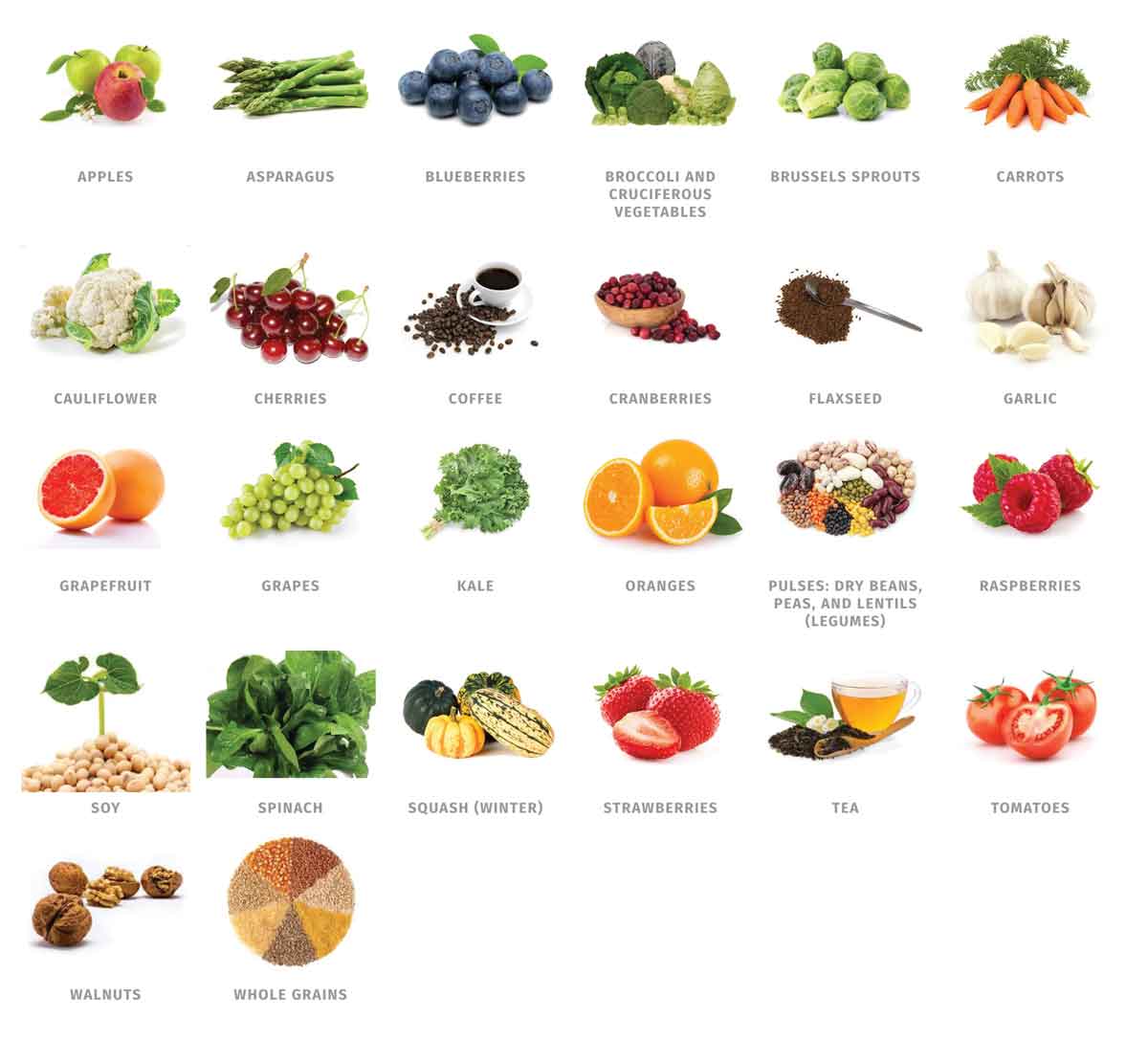
What Factors Contribute to Cancer?
There is no single cause for cancer, but scientists believe that most cancers develop when cells divide. Trillions of cells in the body continuously divide, multiply, and replace themselves in a controlled fashion. During normal cell division, the contents of the cell duplicate. The genetic materials in the nucleus of cells, namely DNA, must also duplicate and make a copy of themselves so that each new cell receives a copy of the DNA. All cells in the body except red blood cells contain DNA.
The DNA chain is made of millions of subunits. A gene is a segment of DNA with specific subunits. During cell division, the order of subunits may change due to some factors. Any change in the structure of the DNA (mutation) can change the functions and instructions of the new cell which can cause the cell to grow out of control and become cancerous.
Factors That Cause DNA to Change
Smoking, toxic chemicals, pesticides, some viruses, radiation, genetic disorders, family history, lifestyle, diet, environmental exposures to chemicals, and even living close to powerlines are considered risk factors. Any of these factors or a combination of them can affect body cells, change the structure of their DNA, and cause the development of cancer cells. Usually, the formation of a cancer cell takes place over a long time. Besides, not all abnormal cells are cancerous. Fortunately, our immune system destroys most abnormal or cancer cells.
What Foods Increase the Risk of Cancer?
According to the American Institute for Cancer Research, there are some foods that, if consumed regularly and excessively, can increase the risk of cancer. (1)
Processed Meat
Common examples of processed meats include bacon, sausage, hot dogs, pepperoni, ham, corned beef, and cold cuts like bologna and salami. The compounds in processed meat that are tied to cancer are produced during the process of making the products, such as smoking, curing, and addition of nitrate- or nitrite-based additives. Frequent consumption of processed foods can change the DNA structure in the cells of the body, raising the risk of some cancers, especially colorectal cancer. (2)
Three main chemicals have been linked to colorectal cancer, one of which occurs naturally in meat, such as heme (the pigments in the blood) trapped in meat which enters the products during grinding, mixing, and processing. The other chemicals are nitrates and nitrites, which are added to the mix during the process. Some other chemicals may also be added to processed food, including sugar, saturated fats, and other preservatives. The American Institute of Cancer Research recommends eating as little processed meat as possible and reducing portion size. (2)
Red Meat
Studies show that there is strong evidence that eating high amounts of red meat including beef, pork, and lamb increases the risk of colorectal cancer. (3) Additionally, the temperature at which meat is prepared can also increase cancer risk. For example, chargrilled burgers and steaks, and other meat products that are charred or burned, can produce carcinogens that are linked to cancer. (3) Studies indicate that some carcinogenic chemicals, such as heterocyclic amines and polycyclic amines, are produced when meat is cooked at high temperatures—which can cause cancer, such as colorectal cancer. (3) Burning oil during frying meats also produces toxic fumes and chemicals that are considered carcinogenic.
Alcohol (Ethanol)
According to the International Agency for Research on Cancer, alcohol is a toxic substance and has been classified as a Group 1 carcinogen. (4) Drinking alcohol has been shown to increase the risk of many forms of cancer. The greater the alcohol consumption, the greater the cancer risk, regardless of whether it’s beer, wine, or distilled liquor. (4) Wine is a popular drink. Red wine contains compounds, such as resveratrol which has health benefits. (4) But the risk comes from alcohol (ethanol) itself which has many side effects when consumed excessively. According to new research from the World Health Organization, cancers of the esophagus, liver, colon, and breast cancer, were among the most common cancers linked to alcohol consumption. (4) Toxic metabolites of alcohol can cause liver and pancreas cancer. (4) There is no “safe” amount of alcohol that does not increase the risk of some cancers.
In humans, ethanol is primarily metabolized in the liver by special enzymes that oxidize the ethanol into acetaldehyde. Acetaldehyde is a known carcinogen and poses greater toxicity in humans than ethanol itself. Studies show that acetaldehyde generates chemically reactive molecules that can damage the DNA structure which can result in a cancer cell. (4) Alcoholic beverages may also contain a variety of carcinogenic contaminants that are introduced during fermentation, such as nitrosamines, phenols, and hydrocarbons that when consumed excessively cause cancer.
What Foods Reduce the Risk of Cancer?
No single food can protect you against cancer by itself. However, reports from the American Cancer Society indicate that most plant-based foods that support the immune system, a healthy weight, reduce inflammation, and promote gut health can help reduce the risk for many cancers. (5)
Tomatoes: Tomatoes and tomato products such as tomato juice, sauce, or paste are high in lycopene (a type of carotenoid), which has a strong antioxidant property. Studies show that lycopene can help reduce the risk of many types of cancers, including esophagus, lung, stomach, pancreas, prostate, breast, and colorectal cancer. (6) Cooking helps to release more lycopene, a fat-soluble nutrient, and makes it available for absorption. Therefore, consuming tomato or tomato products with a little healthy fat such as olive oil increases its bioavailability. (6)
Broccoli: Broccoli and its cruciferous cousins—cauliflower, cabbage, brussels sprouts, kale, and collard greens—have long been associated with a reduced risk of cancer. The chemicals in these veggies, namely sulforaphane, inactivate a gene that plays a role in a variety of cancers. (6)
Berries: All berries are packed with cancer-fighting compounds known as phytochemicals that help fend off chronic diseases like cancer. (6) They’re also low in calories, so they play an important role in maintaining a healthy weight. The recommendation is to eat a variety of berries because each one has a different array of protective compounds.
Garlic: Garlic is one of the oldest plants grown for its dietary and medicinal values. Garlic contains several bioactive molecules that contain anti-cancer properties, including diallyl trisulfide, allicin, and Allylmercaptan. Studies show that consuming garlic provides powerful protection against the risk of some cancers by inhibiting various stages of cancer growth. (6) The active ingredients in garlic are based on tryptophan, selenium, and sulfur, which are responsible for killing cancer cells. Allicin, an anti-inflammatory ingredient in garlic, has been reported to shut off the blood supply to tumors. (6)
Other Effective Cancer-Fighting Foods:
Carrots have been linked in certain studies to a lower risk of stomach, lung, and prostate cancer. Beans are high in fiber, which may be protective against colorectal tumors and colon cancer. Cinnamon extract may have anticancer effects and may aid in the reduction of tumor growth and spread. Turmeric contains curcumin, which is a potent antioxidant and has been shown to reduce the growth of some types of cancers. Citrus Fruits might decrease the risk of certain types of cancers, including pancreatic and stomach cancers, along with cancers of the digestive and upper respiratory tracts. Flaxseed may reduce cancer growth in breast and prostate cancers. It is also high in fiber, which may help prevent colorectal cancer. Green Tea is a powerful antioxidant and may be an important part of an anti-cancer diet. Green tea is among the cancer-fighting foods that may help prevent liver, breast, pancreatic, lung, esophageal, and skin cancer. (6)
Summary
Any change in the structure of the DNA (mutation) can change the functions and instructions of the new cell which can cause the cell to grow out of control and become cancerous. Smoking, toxic chemicals, radiation, lifestyle, and diet are considered risk factors which may change the structure of the DNA and cause cancer. Excessive consumption of alcohol, processed meats, and red meats are among the risk factors for cancer. Most plant-based foods such as tomatoes, broccoli, mushrooms, and green tea can help reduce the risk of many cancers.
____________________________________________________
References
- https://www.aicr.org/cancer-prevention/food-facts/
- https://www.mdanderson.org/publications/focused-on-health/eat-less-processed-meat.h11-1590624.html
- https://www.aarp.org/health/conditions-treatments/info-2020/reducing-cancer-risk.html
- https://www.cancer.gov/about-cancer/causes-prevention/risk/alcohol/alcohol-fact-sheet
- https://www.webmd.com/cancer/ss/slideshow-cancer-fighting-foods
- https://www.maxhealthcare.in/blogs/revealed-top-5-cancer-fighting-foods

